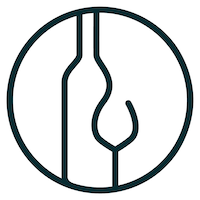
In hospitality, as with any client-facing role, dealing with demanding guests is an inevitable part of the job. Everyone has to know how to handle these situations because they can significantly affect the establishment’s reputation and your career growth. There are various strategies to use when dealing with difficult guests in the hospitality profession.
The Basics of Dealing With Difficult Guests
We’ve listed the typical procedures to save you time and get into some critical aspects of customer service next.
- Practice active listening – make eye contact, nod occasionally, and refrain from interrupting to show the guest you are fully engaged and take their concerns seriously.
- Show empathy – listening and understanding their concerns can go a long way in calming a distressed guest. Try to see the situation from their perspective.
- Ask questions – clarify the issue by asking open-ended questions to understand the problem and show the guest that you are committed to resolving their concern.
- Thank them for raising their concerns – a simple “Thank you for bringing this to our attention; we value your input” can make a guest feel appreciated and more cooperative.
- Find a swift solution – once you understand the issue, act quickly to resolve it. Delays can escalate the situation. If a solution is not immediately available, inform the guest of the steps you are taking to address the issue.
- Follow up – after resolving the issue, follow up with the guest to ensure they are satisfied with the solution and to show you care about their experience.
- Assess the situation from all sides – sometimes, the issue might involve multiple employees or departments. Involve all relevant parties to find a comprehensive resolution to prevent similar problems in the future.
- Maintain records of such incidents – documenting incidents helps identify recurring issues and patterns and can serve as a reference for future training.
Stay Positive
A positive attitude can defuse even the tensest situations. Smiling, keeping a calm demeanour, and using positive language can help turn a negative interaction into a positive one. Guests often mirror the behaviour and attitude of the staff, so your positivity can influence their mood.
Try Not to Take It Personally
It’s easy to feel attacked when a guest is upset, but remember that their frustration is directed at the situation, not you personally. Maintaining a professional distance can help you manage your emotions and respond more effectively.
Addressing Online Complaints
Online reviews and social media posts can amplify guest complaints. Address these complaints promptly and professionally. Acknowledge the issue, apologise sincerely, and outline the steps you are taking to resolve it. This mitigates the impact of the negative review.
Learn and Improve
Every interaction with a difficult guest is a chance to learn and improve. Reflect on what went well and what could have been handled better and use this feedback to enhance your skills and train your team.
Cultivate Guest Loyalty
Turning a negative experience into a positive one can create loyal guests. By handling these situations effectively, you show your commitment to guest satisfaction, which can turn a disgruntled guest into a loyal one.
Dealing with difficult guests is a challenging but essential aspect of working in the hospitality industry. Though these practices may seem easy enough, they aren’t always quite so simple. That is why it is never too soon or too late to deepen your hospitality skills and knowledge; consider enrolling in a hospitality course today.





